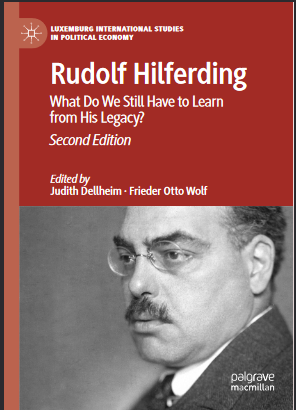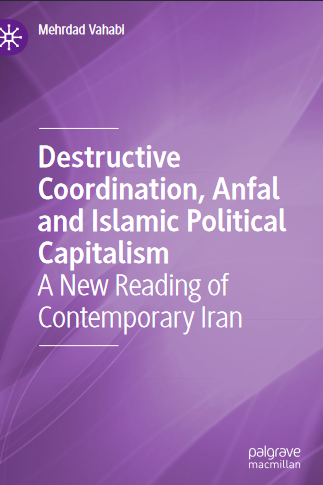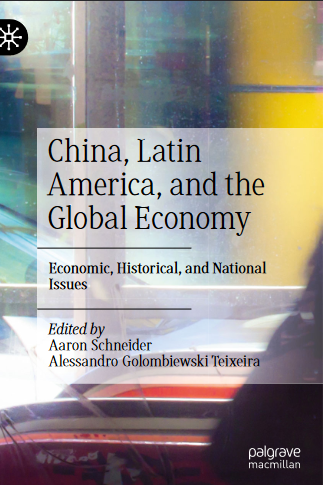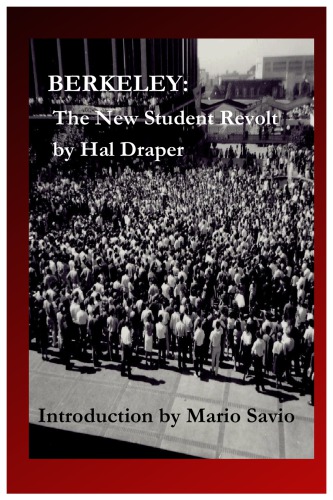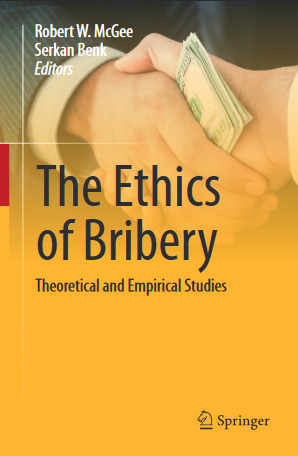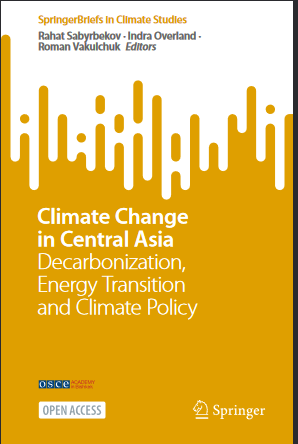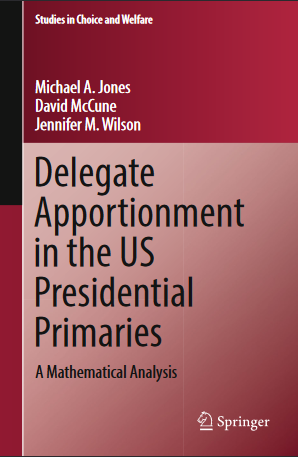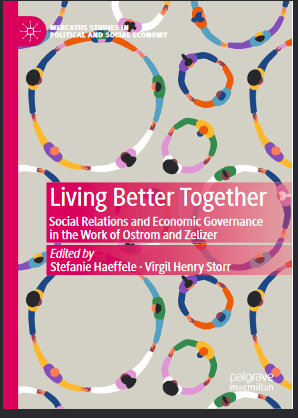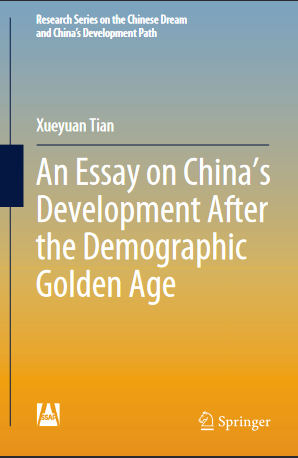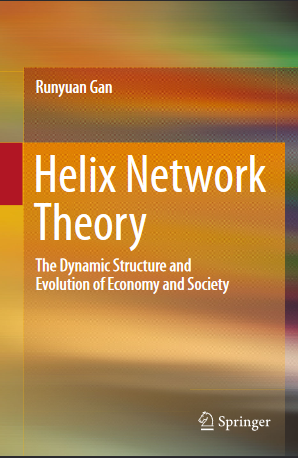موضوعات
آموزش و پرورش
ادبیات و زبان
پزشکی، دندانپزشکی و داروسازی
تاریخ و جغرافیا
داستان و رمان
دیگر
دین و فلسفه
روانشناسی
ریاضیات و آمار
سلامتی، تناسب اندام و رژیم غذایی
شیمی و پلیمر
علوم اجتماعی و حقوق
علوم زیستی و بیوتکنولوژی
فیزیک و نجوم
کامپیوتر و اینترنت
کتابهای کودکان و داستان
کسب و کار و اقتصاد
کشاورزی و دامپزشکی و غذا
معماری
مهندسی و فناوری
هنر و تئاتر
محصولات
Rudolf Hilferding What Do We Still Have to Learn from His Legacy? - Original PDF
نویسندگان: خلاصه: Editors and authors are, of course, grateful for the interest of our readers that has made it possible to realise a second edition now. We have made use of this happy occasion to correct mistakes we had overlooked in the first edition, to actualise the texts wherever needed, and to add four texts: one by Michael R. Krätke on the still unpublished notes of Hilferding’s last manuscript which had been published post-humously (discussed as such by F. O. Wolf), and another one, also by Krätke, on Hilferding’s cor- respondence; plus a presentation of Krzywicki, the Polish ‘equivalent’ to Hilferding, by Toporowski, as well as a contribution by the editors open- ing a perspective on Varga. We hope to fuel the incipient debate on Hilferding by providing access to these materials—which are not merely of biographical relevancy. We also have added a contribution on Eugen Varga, leading on to the next collection of texts planned in this series. All authors have had the occasion to revise their texts according to the need they could see for this. Accordingly, the new edition will serve as a use- ful tool for further developing the debate on Hilferding, after it had been unblocked from political fetters resulting from older political antagonisms. We have become aware that there is an important and specific debate on Hilferding in Japan. Minoru Kurata and Masaaki Kurotaki should at least be mentioned here. Unfortunately, we have not been able to find a Japanese author for presenting this debate authentically, for which we only Preface to the second edition xviii PREFACE TO THE SECOND EDITION have passing references in the volume. This remains an open challenge for further research and debate.1 In finishing this volume, while the terrible ‘military operations’ gener- ated especially by Putin and his narrow power circle are unfolding, we want to underline the deep internationalist character of our work aiming at strengthening critical thinking and emancipatory-solidarityDestructive Coordination, Anfal and Islamic Political Capitalism A New Reading of Contemporary Iran - Original PDF
نویسندگان: خلاصه: xi The term Anfal in the title of this book is not familiar for the general readership and its meaning cannot be easily understood by referring to English dictionaries. What is Anfal? If you launch an internet search on Anfal, you will encounter two main strands of literature. The first one relates to the Kurdish genocide by Saddam’s regime in the late eighties, and the second is about the eight Surah (chapter) of the Koran known as ‘Al-Anfal’. As Kurdistan regional government has aptly underlined, in Kurdish society, the word Anfal has come to represent the entire genocide over decades. Anfal was the term used by Saddam Hossein to describe a series of eight military campaigns conducted by the Iraqi government against rural Kurdish communities in Iraq, which lasted from February 23 to September 6, 1988.1 The campaign took its name from Surah al-Anfal in the Koran. Al-Anfal literally means the spoils of war (bounties) and was used to describe the military campaign of extermination and looting commanded by Ali Hassan al-Majid, the cousin of Saddam Hossein. As President of Iraq, Saddam Hossein frequently used religious language when describing the actions of his Ba’athist regime (see Johns, 2006), portraying Arabs as true defenders of Islam and Kurds as infidels.2China, Latin America, and the Global Economy Economic, Historical, and National Issues - Original PDF
نویسندگان: خلاصه: CHAPTER 1 Introduction Alessandro Golombiewski Teixeira and Aaron Schneider China has sought to occupy a more prominent global position without upsetting existing international relationships. This has been especially true in Latin America, where the US continues to dominate regional relations as a result of geographic proximity and historical engagement, among other reasons. Still, China is already the top trading partner or among the top trading partners for every country in the region, espe- cially as Chinese growth outpaced the West in the aftermath of the 2008 financial crisis, and China has continued to act as the motor for the international economy after the onset of the 2019 pandemic. Increas- ingly, Chinese capital rivals Western-dominated multilateral, bilateral, and private lenders and investors in the region. To make sense of Chinese “going out” and the response from Latin America, the current projecThe Ethics of Bribery Theoretical and Empirical Studies - Original PDF
نویسندگان: خلاصه: he present study is part of a much larger study that examines the ethics of bribery and tax evasion. The bribery studies consist (so far) of two books (McGee & Benk, 2023a; McGee & Benk, 2023y) and many articles and book chapters. Summaries of 28 studies (McGee, 2023a), 24 studies (McGee, 2023b), 44 studies (McGee, 2022a), and 80+ studies (McGee, 2022b) are also available. The tax evasion studies started in 1994 (McGee, 1994) and picked up speed in 1998 when the first book in the tax evasion series was published (McGee, 1998). The second book in the series was published in 2012 (McGee, 2012a). Two more books were recently added to the tax evasion collection (McGee & Shopovski, 2023a, b). Many articles and book chapters on the ethics of tax evasion have been published over the years. Summaries of many of them are available. There are sum- maries of 49 studies that used a survey template that usually consisted of 18 state- ments starting with the phrase, “Tax evasion is ethical if ...” (McGee, 2012b). Another study summarized 23 studies that used World Values Survey data (McGee, 2012c). Other studies summarize 3 studies (McGee, 2012d), 21 studies (McGee, 2022c), 35 studies (McGee, 2022d), 60+ surveys (McGee, 2022e), 70+ theoretical and empirical studies (McGee, 2022f), 100+ studies (McGee, 2022g), 80+ studies (McGee, 2022h), 34+ studies (McGee, 2022i), and 44+ studies (McGee, 2022j). Part II of the book addresses attitudes toward bribery from different religious perspectives. The first chapter in this section provides a comparative study of reli- gious attitudes toward bribery (McGee et al., 2023a). There are also chapters that report on attitudes of Christians (McGee et al., 2023b), Muslims (McGee et al.Climate Change in Central Asia Decarbonization, Energy Transition and Climate Policy - Original PDF
نویسندگان: خلاصه: This chapter provides a broad introduction to the impact of climate change in Central Asia, a region that has been experiencing a greater rise in temperatures than other parts of the world. The chapter shows how climate change represents a significant threat to Central Asia, exacerbating existing economic and environmental challenges and fueling regional tensions over resource management. Inefficient water resource management at the national level and limited regional collaboration on the management of water resources, coupled with state capacities that remain insuffi- cient to tackle climate change impacts, compound water-related tensions between the countries in the region. The chapter also shows how decarbonisation efforts in Central Asia are still in their early stages, with coal remaining a primary source of energy. Although the Central Asian countries have announced decarbonisation targets and adopted green economy strategies and programmes to reduce green- house gas emissions, a large-scale clean energy transition remains unlikely in the short term. The chapter concludes by identifying a lack of scholarship on climate change in Central Asia, which limits the development of a coherent approach to climate change mitigation and adaptation and evidence-based decision-making in the region. The chapter argues that a more coordinated approach to tackling climate change across the region is needed, requiring closer collaboration and more effective joint management of natural resources by the five Central Asian states. Finally, the chapter presents the chapters in the rest of the bookDelegate Apportionment in the US Presidential Primaries A Mathematical Analysis - Original PDF
نویسندگان: خلاصه: The purpose of this book is to examine the mathematics of the delegate allocation process in the US presidential primaries. The US presidential primaries are a series of state elections held every four years that determine the Democratic and Republican Parties’ nominees for president in the general election. Presidential candidates in each party are awarded delegates based on their shares of the vote in each state contest. At the end of the primary season, each party holds a national convention. The candidate with a majority of state delegates, after one or more rounds of voting, is selected to be the party’s nominee for president. From a mathematical standpoint, the question of how to allocate delegates is largely a problem of apportionment. Apportionment problems arise when a fixed quantity (such as a number of delegates) must be divided among several constituents (such as candidates) in proportion to some attribute (such as vote share), so that each portion is a whole number. Since delegates are individuals and cannot be divided, their allocation is a matter of apportionment. Apportionment or similar allocation problems occur at multiple stages in the delegate selection process from determining how many delegates each state receives, and how they should be divided between statewide and district delegates, to determining what happens after each primary when the delegates must be awarded to the candidates based on how well they do in the election. Apportionment has been well-studied in the context of allocating state represen- tatives to the US House of Representatives in proportion to state populations. It has also been widely analyzed for its role in proportional representation systems where party seats are awarded to parties based on the vote distribution. It is less well-known in the case of apportioning delegates in the US primaries. Thus the examination of apportionment applied to delegate allocation involves both an identification and anal- ysis of new apportionment methods as well as an evaluation of old and new criteria by which to evaluate their properties. The goal of this book is to do both. We have spent several years researching delegate allocation in presidential primaries and were inspired to write this volume because of the interesting aspects of apportionment arising in this context. The book’s vii viii Preface origin can be traced to 2016, when we observed that the 2016 Georgia Repub- lican party adopted an apportionment method for its state primary that was unique and perhaps the most interesting method we had encountered. This motivated us to investigate the methods used by other state parties, many of which are new, and to consider how the allocation of delegates is affected by elimination thresholds—the minimum levels of support required to receive delegates—and the overall structure of the state delegates selection plans in which delegates are apportioned based on vote distributions in each district and statewide. This led us also to consider how the goals of delegate apportionment differ from that of house or party apportionment— most noticeably in that the state primaries occur over time, and that the end result is not political representation but the declaration of a winner. This means that the usual criteria for evaluating apportionment need to be rethought in an effort to deter- mine what features of traditional apportionment theory are most relevant to delegate apportionment and which features are not.Living Better Together Social Relations and Economic Governance in the Work of Ostrom and Zelize - PDF
نویسندگان: خلاصه: olitical economy is a robust field of study that examines the economic and political institutions that shape our interactions with one another. Likewise, social economy focuses on the social interactions, networks, and communities that embody our daily lives. Together, these fields of study seek to understand the historical and contemporary world around us by examining market, political, and social institutions. Through these sectors of life, people come together to exchange goods and services, solve collective problems, and build communities to live better together. Scholarship in this tradition is alive and thriving today. By using the lens of political and social economy, books in this series will examine complex social problems, the institutions that attempt to solve these prob- lems, and the consequences of action within such institutions. Further, this approach lends itself to a variety of methods, including fieldwork, case studies, and experimental economics. Such analysis allows for deeper understanding of social phenomena, detailing the context, incentives, and interactions that shape our lives. This series provides a much-needed space for interdisciplinary research on contemporary topics on political and social economy. In much of academia today, scholars are encouraged to work independently and within the strict boundaries of their disciplines. However, the pursuit of understanding our society requires social scien- tists to collaborate across disciplines, using multiple methods. This series provides such an opportunity for scholars interested in breaking down the boundaries of disciplines in order to better understand the world around usAn Essay on China’s Development After the Demographic Golden Age - Original PDF
نویسندگان: خلاصه: Su Shi, a well-known ci poet of the Song Dynasty, wrote a seven-character quatrain: “It is a range viewed in face and peaks viewed from the side, assuming different shapes viewed from far and wide. Of Mountain Lu we cannot make out the true face, for we are lost in the heart of the very place”. The poem not only depicts the picturesque scenery of Mountain Lu and contains the dialectical idea that those closely involved in something cannot see it clearly, but also provides people with ways and means to observe things, giving the poem an enduring appeal. When we look at the past four million years of human evolution, the trajectory of humanity before they reach the pinnacles of achievements in economic, technological, cultural, and social dimensions today, we may find out there are three distinct eras. As is known to many, an economic era is not defined by what is produced, but by how and what kind of tools are used for production. As the production tools typical of an era vary, so does the capital an economy depends on for growth. We may roughly divide the economic development of humanity into three eras, characterized by hand tools and natural capital, by machine tools and production capital, and by intellectual tools and human capital, respectively. In the era of hand tools, agrarian and prior forms of society—which span from primitive, slave to feudal societies—relied mainly on natural capital. Natural capital provides natural means of living and production, and the multiplication of popula- tion is mainly reflected in the size of the workforce. Therefore, ancient and medieval civilizations appeared mostly in places with fertile land, abundant precipitation, mild climate, convenient land and water transportation, a dense population and large labor force. Cases in point are the five cradles of civilizations, namely, ancient Mesopotamia along the Tigris and Euphrates, ancient Egypt along the Nile Valley, ancient India along the Ganges River, ancient China along the Yellow River, and ancient Greece. The prosperity of the Seljuk Empire, the Russian Empire, and the French Empire in the Middle Ages could also be attributed to their superiority in natural capital and populationHelix Network Theory The Dynamic Structure and Evolution of Economy and Society Interdisciplinary Integrated Economics Creating a Brand New “Micro-Meso-Macro” Paradigm - Original PDF
نویسندگان: خلاصه: Foreword by Gong-Meng Chen I first met and started working with Gan Runyuan, the author of the book, around April and May of 2002. Back then, I had just established the China Accounting and Finance Research Centre at Hong Kong Polytechnic University in Shenzhen. Because the research centre was not long established, it was necessary to introduce various talents. Gan Runyuan was one of the first groups of personnel recruited into the research centre. By 2003, with the active support of Cheng Si-Wei, I and my colleagues had founded the China Venture Capital Research Institute. During that period of time, Gan Runyuan worked as my assistant and participated in many tasks at the China Accounting and Finance Research Centre and China Venture Capital Research Institute. He was easy-going, serious in working, and I was always impressed. Later, Gan Runyuan left Shenzhen to Shanghai. However, he still kept in touch with me and participated in several forums organised by the China Venture Capital Research Institute. At the end of March this year, Gan visited Shenzhen. I learned that he had written an economics monograph, Helix Network Theory, and he invited me to write a preface to this book. He said that this is the ten-year brainchild of his toil, blood, and sweat. I did not expect him after leaving Shenzhen for more than ten years, not only reading that many books on economics and sociology but also spending quite a few years writing an econoآیا کتاب مورد نظر هنوز بر روی سایت قرار نگرفته است؟ جای نگرانی نیست! کافی است بر روی گزینه سفارش کتاب کلیک کرده و درخواست خود را ثبت کنید. در کمتر از چند ساعت کتاب شما را آماده خواهیم کرد.
